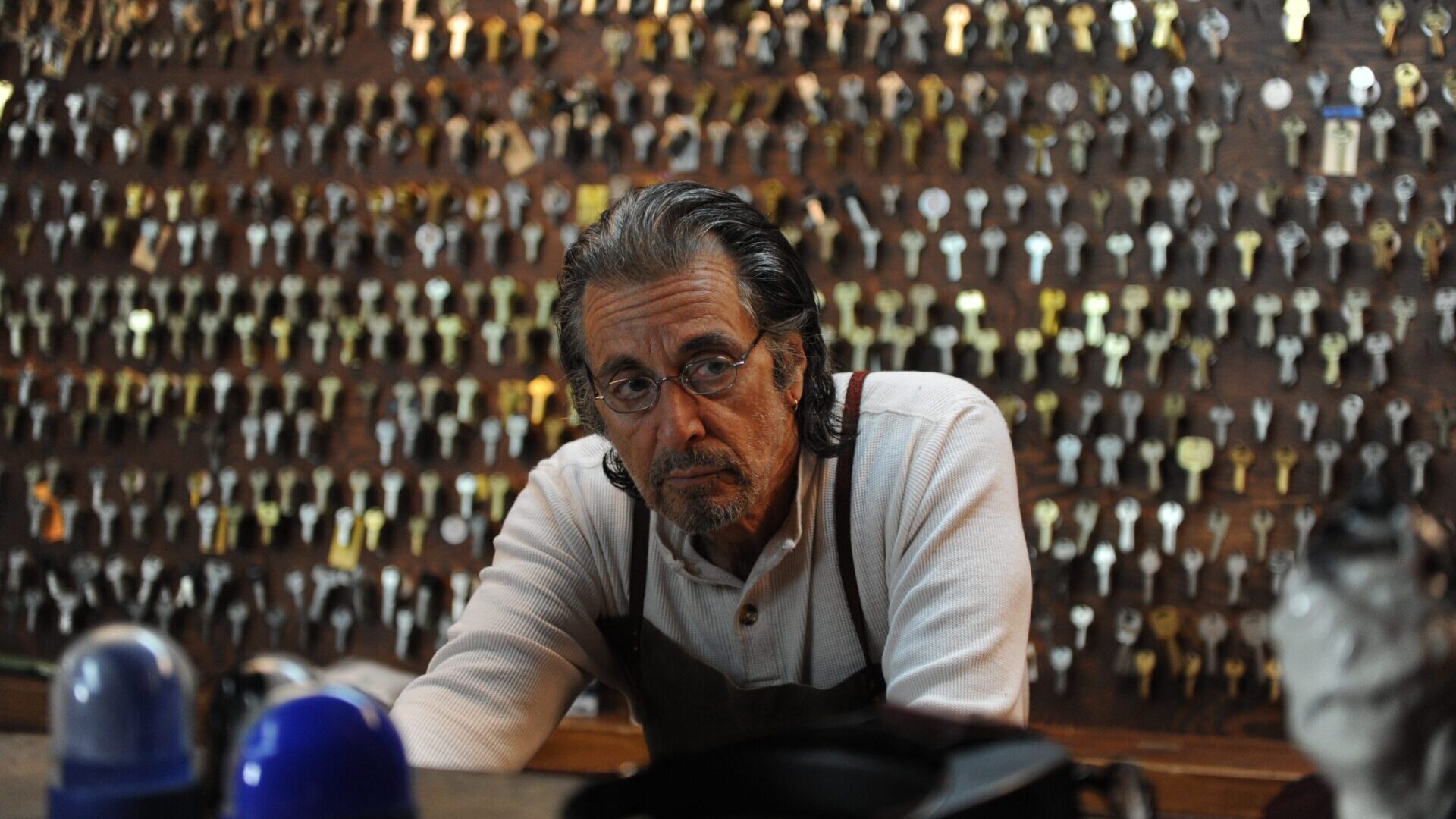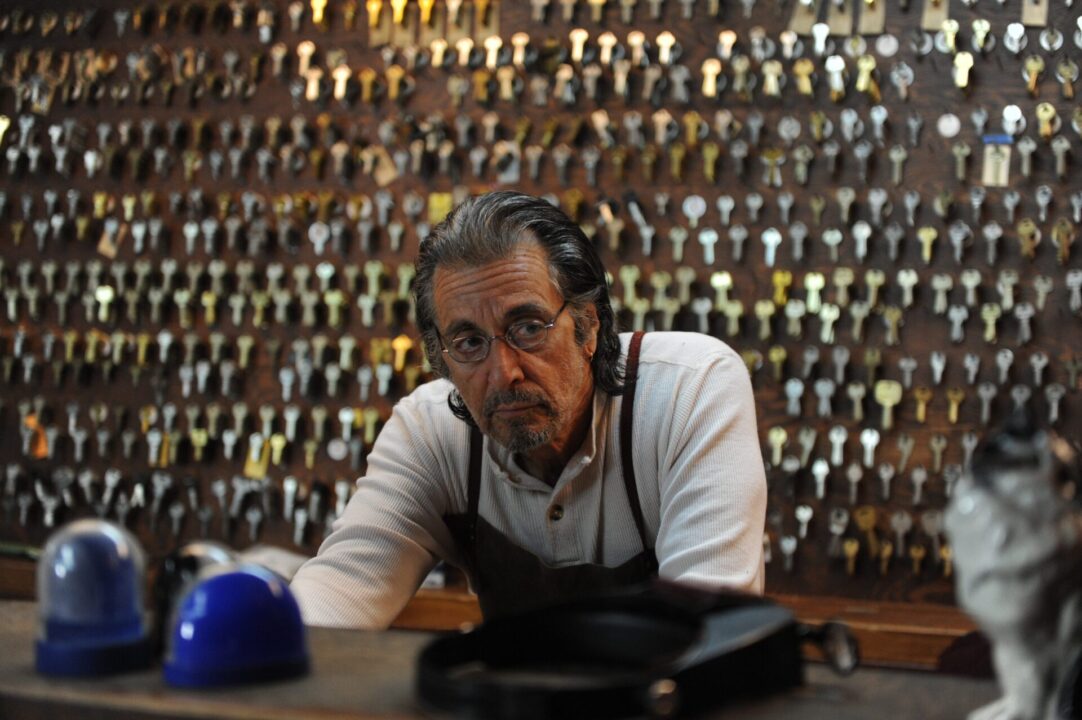Some performers are so ubiquitous, so ingrained in the American cinematic consciousness that no matter how hard they try to break away – or in this case, reappear – their attempts seem futile. Al Pacino is one of those artists – one of the great leading actors of cinema’s young life. In the last year, independent Hollywood seems to have re-discovered his talents and finally re-adjusted his role. He is now the wise elder looking back at his better years with existential longing for the love and compassion of decades past. His last three lead roles – an aging mobster in Stand Up Guys, an aging actor in The Humbling, and an aging rock star in Danny Collins, all mirror his latest in the streak: the ever-prolific David Gordon Green’s Manglehorn.
Debuting on last year’s festival circuit in Venice and Toronto, Pacino’s eponymous Manglehorn is an aging locksmith who longs for Clara (Natalie Wilemon), the one who got away. Not much is revealed about her, or their relationship through Manglehorn’s voice-over musings, though it is clear that they had something very special. His emptiness hinders his connections with his successful yuppie son (Chris Messina), the charming bank teller he visits every Friday (Holly Hunter) and an old athlete from his high school coaching days who drags him into his greasy massage parlor (Harmony Korine), as he half-heartedly moves through the daily motions, finding little ways to reinvigorate his life and relationships.
It’s an awkward amalgam of indie drama and magical realism that on occasion, is exactly that – magical. In very specific moments, Gordon Green diverts from the stale narrative to give Manglehorn, the character, a mystical aura that is much more fascinating than his all-too regular story.
If this all sounds fairly flat – it is. Manglehorn is not a film that lacks any substance or style. It has plenty of both, though too much of it falls into the cracks in the subtext, and not enough appears on the screen. It’s an awkward amalgam of indie drama and magical realism that on occasion, is exactly that – magical. In very specific moments, Gordon Green diverts from the stale narrative to give Manglehorn, the character, a mystical aura that is much more fascinating than his all-too regular story. The ending, for example, may be among the most beautifully baffling final moments in recent cinema.
Unfortunately, there isn’t much to love about Manglehorn himself. Despite his cranky nature, he is endearing. However, this makes him so hard to understand, except through very vague voic-eover about his lost love Clara. Pacino does his best, though at times he feels almost too good for the movie. Harmony Korine and Chris Messina give strong turns in underwritten supporting roles, yet Pacino outshines them for simply, well, being Pacino.
This is the issue that comes forward in Manglehorn. It all feels like a Pacino vehicle, an outlet for a living legend to make a big return in a small feature. More than anything, it showcases David Gordon Green’s unique abilities for tonal shape-shifting, a technique that almost pays off for Manglehorn – a film that would work so well, if it only knew what is was really about.
Manglehorn opens limited in LA at the Sundance Sunset Cinema today.
Jasper Bernbaum
Jasper is a contributing writer for Cinemacy. He combines his love of music with his visual eye into a passion for live photography. He holds a BFA in Film Production from Chapman University and is an avid filmmaker, watcher, and all around cultural adventurer.


